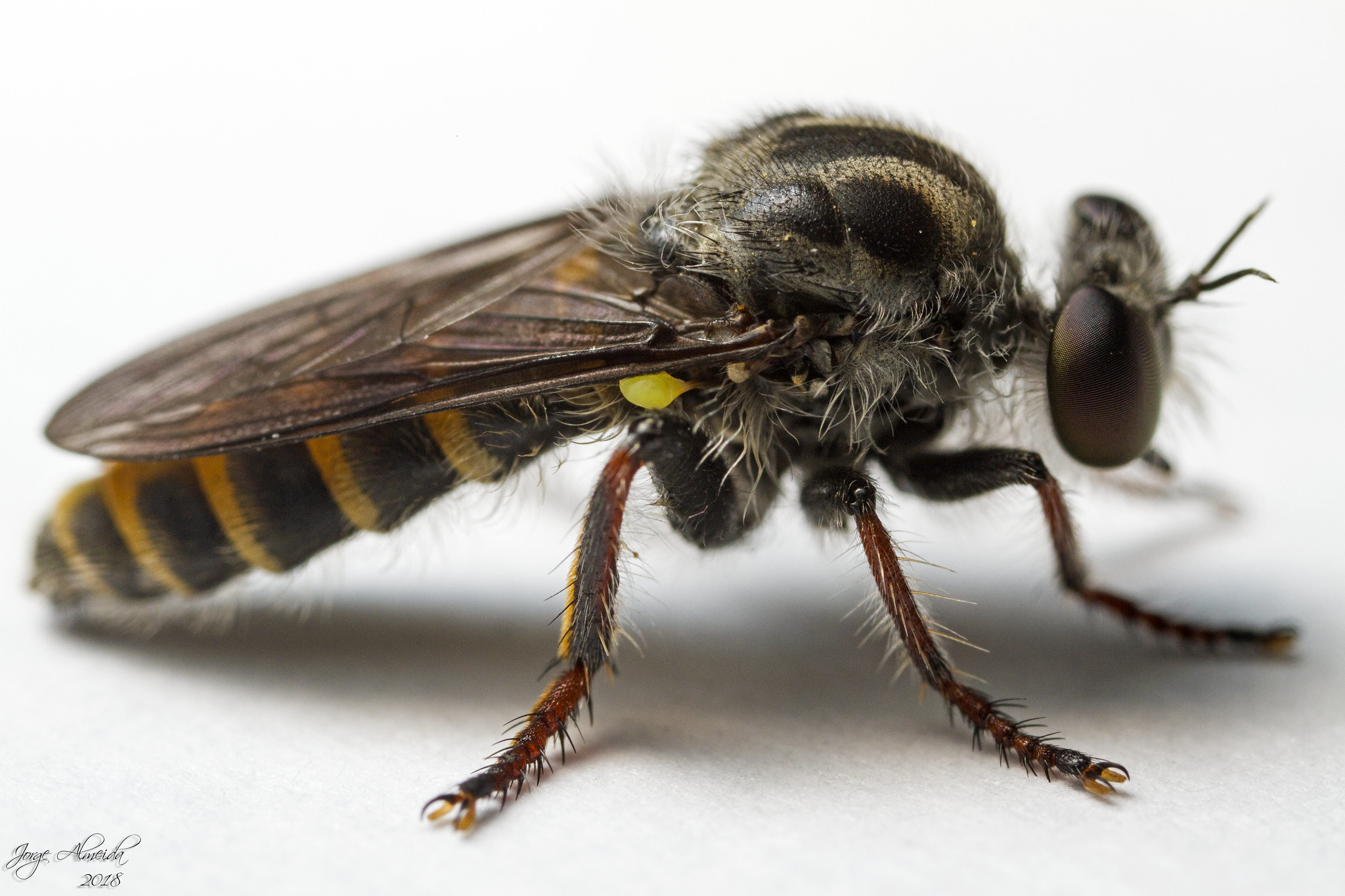Thread subject: Diptera.info :: Asilidae - Stenopogoninae - Heteropogon aurocinctus from Serra da Estrela and from Serra Montesinho
Posted by jorgemotalmeida on 20-07-2010 22:00
#1
HI
I saw this asilid in Nave de Santo Ant├│nio - circa 1500 m altitud - on 2010.VII.14
Edited by jorgemotalmeida on 29-07-2018 03:15
Posted by jorgemotalmeida on 20-07-2010 22:02
#2
another...
Posted by jorgemotalmeida on 21-07-2010 01:03
#3
another..
Posted by jorgemotalmeida on 21-07-2010 01:06
#4
another..
Posted by jorgemotalmeida on 21-07-2010 01:11
#5
another...
Posted by jorgemotalmeida on 21-07-2010 01:12
#6
another...
Posted by jorgemotalmeida on 21-07-2010 01:12
#7
another...
Posted by jorgemotalmeida on 21-07-2010 01:15
#8
another..
Posted by jorgemotalmeida on 21-07-2010 09:28
#9
detail of the head
Posted by Eric Fisher on 21-07-2010 23:14
#10
A very interesting asilid Jorge! It has the habitus of a Laphystia relative -- but doesn't seem to match the Laphystia I'm familiar with (mainly Nearctic spp.!). The antennae and abdomen are different, and the face is narrower; can't see tergal bristles or wing tip venation in sufficient detail -- to tell about those features. Your Serra da Estrela definitely has some great flies!
Posted by jorgemotalmeida on 21-07-2010 23:24
#11
in a few minutes, I will upload the photo of the wing tip.
And yes, Serra da Estrela is among the best spot in Europe without any doubts! :) A first stop in Portugal for Diptera lovers. But it requires time to know the best places. Anyone willing to come Serra da Estrela contact me. (i only can help in the summer time, though).
Posted by jorgemotalmeida on 21-07-2010 23:30
#12
here the wing tip.
Posted by Eric Fisher on 22-07-2010 01:54
#13
Thanks Jorge -- not a Laphystia for sure. Could still be a relative though; genus?
Posted by jorgemotalmeida on 22-07-2010 02:10
#14
the other possiblities:
Glyphotriclis Hermann, 1920
G. ornatus (Schiner, 1868)
Psilocurus Loew, 1874
P. blascoi Weinberg & Bńchli, 2001
Scytomedes von R÷der, 1882
S. haemorrhoidalis (Fabricius, 1794)
Very improbable to be the first two genera..
And what about Triclis and Perasis and Hoplotriclis?
Edited by jorgemotalmeida on 22-07-2010 02:36
Posted by Eric Fisher on 22-07-2010 18:22
#15
I'm able to rule out all of these above-mentioned genera (based on details of wing venation, antennae or face structure). So, it is either something new; or, it is a genus of "Dasypogonomorph" type (Dasypogoninae + Stenopogoninae, etc. : the limits of these previously recognized groups are now challenged by a new phylogeny - Dikow 2009) that I just don't know.
If somebody recognizes this neat fly -- please speak-up!
Regards,
Eric
Posted by jorgemotalmeida on 22-07-2010 19:22
#16
Thanks very much , Eric. Well, I really need to collect more specimens. I will come back to Nave de Santo Antˇnio!
Maybe Torsten or Dysmachus can tell more on this asilid...
I'll get for you specimens of this asilid.
Posted by Dysmachus on 23-07-2011 22:32
#17
Using my key to the Palaearctic Laphystiini genera on the base of LEHR (1969) and my personal notes, this species seems to be closely related to
Torebroma - BUT it has a closed fourth posterior cell. Because of the wing venation and some other characters, it isn't so easy to assign the subfamily. So I agree with Eric Fisher that this specimen should be checked by Torsten Dikow (torsten@tdvia.de). Yours
Posted by jorgemotalmeida on 16-09-2014 21:40
#18
Why not Heteropogon aurocinctus? It would be great to see an holotype of this one.
Posted by jorgemotalmeida on 21-09-2014 16:48
#19
at least I would like to know if someone can tell where this holotype can be found. Original descriptions do not have this information, unfortunately.
Posted by jorgemotalmeida on 10-11-2014 23:31
#20
News. Eric wrote me and this is a Stepogoninae asilid. :)
"the (..) fly (recent thread # 31925) is positively NOT a Laphriinae (nor a Laphystiini)! Sensu Lehr 1988 (Pal. Cat.), it is a Stenopogoninae of some sort."
So now speak out to try identify the possible genera... now it should be a bit easier.. :)
Edited by jorgemotalmeida on 10-11-2014 23:32
Posted by jorgemotalmeida on 29-07-2018 03:05
#21
I gave to Eric and Torsten Dikow the specimens I had of H. aurocinctus. Finally I have found after 7 years (I have found another H. aurocinctus in 2011) a new H. aurocintus!!
 http://iberiandip...urocinctus
http://iberiandip...urocinctus
Edited by jorgemotalmeida on 29-07-2018 03:17
